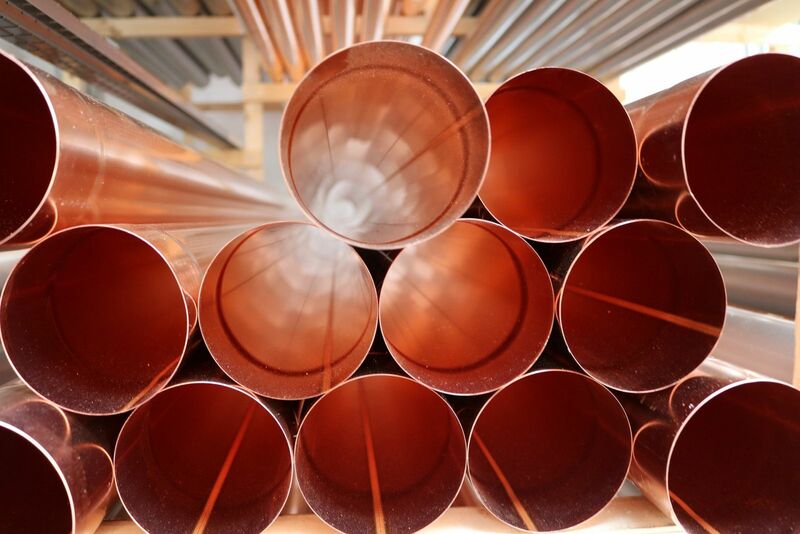
In a May 7 Barchart article, I asked if Copper was heading for a new record high. The nearby July COMEX futures price was at the $4.6255 level on May 6, and the bullish trend threatened to challenge the March 2022 $5.01 high. I highlighted that the technical trend, climate change initiatives, and production struggling to keep up with the rising demand presented a compelling bullish case for copper.
Copper’s correction from its most recent high has not negated the long-term bullish trend. The odds continue to favor even higher highs over the coming months.
A new peak for the red metal
July COMEX copper futures broke through the $5 per pound level to a new record high on May 14, 2024, surpassing the March 2022 $5.01 previous record peak.

The three-month chart highlights copper’s rise, taking the July futures to a $5.1990 per pound high on May 20. Even the most aggressive bull markets rarely move in straight lines, and copper is no exception. As the red metal ran out of upside steam, the price dropped below the $4.50 level as copper corrected from the new all-time high.

Three-month London Metals Exchange copper forwards rose to $11,104.50 per ton, surpassing the previous record high of $10,845 set in March 2022 before correcting lower.
A nearly two-decade-long bullish trend
The bull market in copper is nothing new, as COMEX copper futures have been making mostly higher lows and higher highs since the end of the last century.

The long-term COMEX copper futures chart dating back to 1971 shows that the futures never traded over the $1.6475 level before 2005. Since then, copper has not been below $2 since early 2016 and under $3 since October 2020. The price action shows that each correction in copper has led to a new all-time high.

The long-term LME copper forwards chart displays the same bullish technical pattern since 2001.
Copper- A bellwether commodity
Market participants have long called copper Doctor Copper because of the commodity’s PhD in economics. Rising copper prices have indicated a growing global economy, while falling prices have been a barometer of economic contraction. Since China consumes over 50% of the world’s annual refined copper supplies, copper has become a leading indicator of financial conditions in the world’s second-leading economy.
Along with crude oil, lumber, and gold, copper has long been one of the top indicators for the path of least resistance of the raw materials asset class.
CPER is the copper ETF
The U.S. Copper ETF product (CPER) does an excellent job tracking COMEX copper futures prices.

As the ten-year chart shows, CPER made a new record high in May, tracking the copper futures and forwards. At $27.79 per share, CPER had over $236 million in assets under management. CPER trades an average of over 320,000 shares daily and charges a 0.88% management fee.
DBB incorporates the other liquid LME metals
Copper is the LME’s leading base metal. Aluminum, nickel, lead, zinc, and tin are the other nonferrous metals trading on the world’s leading industrial metals exchange. Copper, aluminum, and zinc are the most liquidly traded metals, while nickel, lead, and tin tend to be more thinly traded, leading to more price variance. The Invesco DB Base Metals Fund (DBB) has exposure to copper, aluminum, and zinc. While aluminum and zinc prices tend to follow copper, there is not a 100% correlation.

The one-year chart shows the upward momentum of the DBB ETF. At $20.11 per share, DBB had over $190 million in assets under management. DBB trades an average of over 223,500 shares daily and charges a 0.77% management fee.
DBB and CPER only trade during U.S. stock market hours, so they can miss highs or lows when the stock market is closed, as base metals trade around the clock. However, over time, the ETFs do an excellent job tracking base metals prices, which remain in long-term bullish trends.
Even the most aggressive bull markets rarely move in straight lines. Copper has significantly declined from the May 20, 2024, record high, and picking a bottom during the current downward slide is dangerous. While long-term fundamental and technical factors favor future higher highs, leave plenty of room to add to long positions on further price weakness. Copper may be a long-term bull, but it has become a short-term bucking bronco.
On the date of publication, Andrew Hecht did not have (either directly or indirectly) positions in any of the securities mentioned in this article. All information and data in this article is solely for informational purposes. For more information please view the Barchart Disclosure Policy here.





